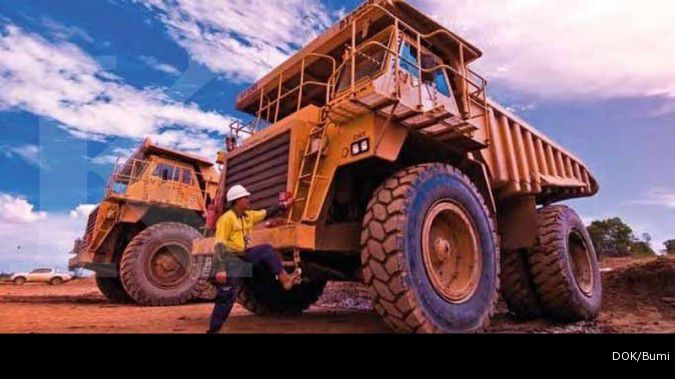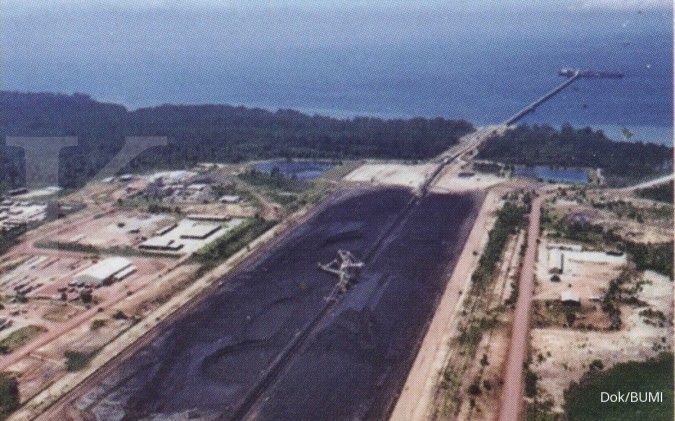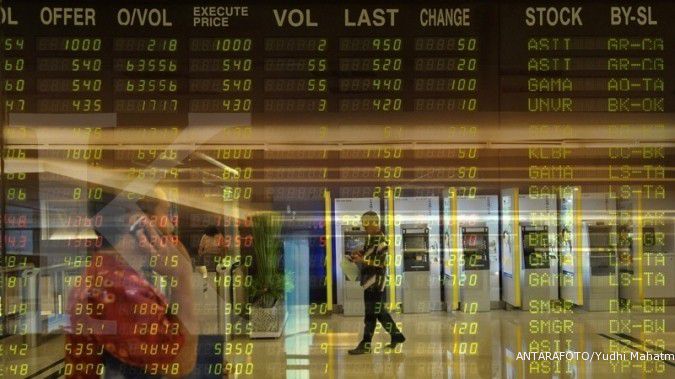JAKARTA. The country’s biggest thermal coal miner PT Bumi Resources will likely report significant increases in production and sales volume during the first nine months of the year, a company official has said.
Company director and corporate secretary Dileep Srivastava said Bumi’s coal production was expected to stand at 60 million tons in the January-September period this year.
The figure would be around a 17 percent increase compared to the company’s production of 51 million tons during the same period in 2012.
Meanwhile, according to Srivastava, sales volume was estimated to touch 59 million tons during the first nine months of the year, which would be equal to more than a 20 percent surge from the same period a year earlier.
Bumi sold 47 million tons during the January-September period of 2012.
“We expect to have sold and mined 19.5 million tons of coal in the third quarter. These are record numbers,” Srivastava said on Tuesday.
He added that the company still maintained its full-year target of 74 million tons in total sales volume by year-end, a 8.8 percent increase from 68 million tons in 2012, but expected to see more.
According to the company’s annual report, its production rose over 12 percent from 65.9 million tons in 2011 to 74.4 million tons a year later.
Coal miners are suffering from a selling price decline caused by bleak world economic growth, and therefore reported a massive fall in profits in the previous quarters.
But a number of analysts are expecting coal prices to rise, particularly on the back of better economic figures from China, which is currently the world’s biggest consumer of coal.
Bumi currently runs its coal mining business mainly through its two biggest subsidiaries, PT Kaltim Prima Coal (KPC) and PT Arutmin Indonesia.
The company announced last week that it aimed to swap its 19 percent stake in KPC as a part of debt settlement to China Investment Corporation (CIC). The 19 percent stake is valued at US$950 million.
Also under the debt settlement proposal, Bumi will release its 42 percent stake in PT Bumi Resources Minerals (BRM) — which has an 18 percent effective stake in gold miner PT Newmont Nusa Tenggara.
Bumi’s 42 percent ownership in BRM is valued at $257.4 million.
Moreover, Bumi will also release its 19 percent stake in both PT Indocoal Kaltim Resources and Indocoal Resources (Cayman) Ltd. as well as issue new shares equal to $150 million.
Those are measures to pay $1.79 billion in obligations to CIC. The obligations consist of $1.3 billion in loan principal, $62 million in interest and $425 million in make-whole premium.
Srivastava said the make-whole premium was the difference between an internal return rate and coupons paid for the debts.
The CIC loans, which were obtained in 2009 with a total of $1.9 billion, carry a coupon of 12 percent and earn an internal return rate of 19 percent at the time of settlement.
Bumi paid the CIC’s loans first tranche amounting to $600 million in 2011. The remaining $1.3 billion loans will mature in 2014 and 2015.
The company is expecting to decrease its debt level by around 33 percent, have a lower interest burden, strengthen its capital structure and have a new partner as a shareholder — CIC — through the debt settlement.
World ratings agency Moody’s Investors Service recently downgraded Bumi’s credit rating over concerns of default as its debts remained huge even after the debt settlement.
Standard & Poor’s, another international ratings agency, also cut the company’s long-term corporate credit rating, for example, on Tuesday over similar concerns, from “CCC” (fourth-lowest rating) to “CC” (third-lowest rating). The outlook is negative, according to the ratings agency.
“We lowered the rating on Bumi because we view the company’s recent agreement with its key lender China Investment Corp. as a distressed debt exchange equivalent to a de-facto default,” said Standard & Poor’s credit analyst Xavier Jean in its statement. (Raras Cahyafitri)
Investasi
/2013/09/19/2062230053.jpg)













